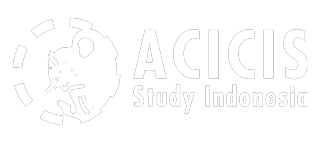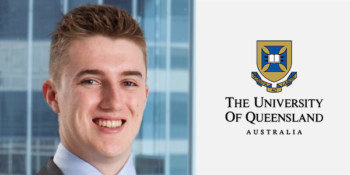Campbell Martin was a participant in the 2021 Virtual Development Studies Professional Practicum. Campbell is studying a Bachelor of Politics, Philosophy and Economics at The University of Queensland. Campbell received a $3000 New Colombo Plan mobility grant to support his participation on this program.
Q: Why did you decide to undertake the ACICIS program?
ACICIS provided an opportunity to engage with Indonesia, which I feel will be very useful in the job market, considering the growing importance of the Australian-Indonesian relationship. The opportunity to learn Indonesian was also appealing.
Q: Did you receive a New Colombo Plan Mobility Grant? Do you think the NCP is an important initiative?
Yes – in the absence of the grant, I likely would not have gone ahead with the program. Other domestic opportunities would have been more appealing had I been unable to secure the grant.
Q: What did you find to be the more rewarding part of this virtual program?
The period of time spent with the Host Organisation was the most rewarding, although I feel that this is highly dependent on the Host Organisation. Also, the time spent speaking with other people on the program, during breakout sessions during the tutorials and language lessons, were also highlights.
Q: What did you find to be the most challenging about your experience on this virtual program?
Remaining engaged with the program due to its virtual nature. The lack of engagement with people meant that it was frequently difficult to stay motivated or engaged. I have spent a significant amount of time at the computer by myself. When also considering the fact that my timetable conforms to Jakarta time, this meant that opportunities to engage with people outside of the program were also limited. I feel that this isolation could have been abated had the cohort had more opportunities to socialise with each other.
Q: What organisation did you intern with?
My HO was Trade and Investment Queensland (TIQ). Throughout my time with them, I worked on various projects designed to complement the core operations of the organisation. Each day, I would drop into a team-wide video call. Further, I regularly attended client meetings.
Q: How have you found the work culture (albeit online) of your host organisation? How is it different to work experience in Australia?
Due to the Australian origins of the organisation, I did not find the work culture particularly distinct from Australian work experiences. There were some obvious changes, such as the use of both Indonesian and English during meetings, particularly with Indonesian clients.
Q: What are the key skills you have learnt during your virtual internship?
Firstly, an understanding of how to develop one’s own projects was very useful. Taking initiative and understanding how a project is evolving, and seeking to advance it on one’s own, was a highly useful skill. Secondly, it became obvious that a little knowledge and research can go a long way in a business meeting, and is an easy way of reflecting serious engagement with the other party.
Q: How will the virtual internship benefit or influence your future career?
The internship has encouraged me to continue study Indonesian, as well as opening my eyes to a suite of new career opportunities, involved in developing the Indonesian-Australian relationship within both the public and private sectors.
Q: Would you recommend this virtual program to your friends?
I would.


